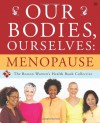Currently reading
Nigella Christmas: Food, Family, Friends, Festivities
Our Bodies, Ourselves: Menopause
The Moon by Night: The Austin Family Chronicles, Book 2
 Let me say first that it's a wonderful book. The characters are people you care about, and get very involved with. The plot is fun. The writing is excellent. However, I think it is dated, no matter what Wendy says to the contrary. The attitudes of the menfolk, first of all- Daddy makes all the calls, takes the women and children out of danger, and dictates what his wife may not wear (pants, natch). John, the priggish elder brother, follows Daddy's lead here. The overarching worry about nuclear war with the Soviets dates it. The wondering if humans will ever fly to the moon dates it. The painful slang- including "hoods" and "beatniks". Even the logging trucks with one log per load make it read as dated. And who calls their father 'Daddy' un-ironically when they are 14? Or like John, 17? Why do I find this particular book dated in a fashion I don't notice with, say, the Betsy-Tacy books? Probably because it feels like L'Engle is attempting to comfort the people who were genuinely Vicky's age when this book came out. There's an undercurrent of very pointed reassurance that seems to be grounded in time, and I think that's what makes parts of this book a little stale. I think that had I been reading this as a young teen in 1963 I would have clung to it like grim death. I read it as a young teen in the mid-70's and thought the slang very silly at the time. But it didn't stop me loving the book.In addition to the things I'm complaining about, there's a timeless story here too, wherein a young girl tries to make sense out of the senseless, to grasp the meaning, if any, of her life at the same time she's beginning to pull away from her family of origin and find her own path. Here is the place in which L'Engle shines like the sun. Her essential, unshakable conviction that there IS a reason for everything, that there IS a hand at the wheel, and that the driving force of that hand is the power of love, infuses every word. And makes all my bitching about beatniks sound as small as it is.It's a wonderful book. I love that it's anchored at both ends with Grandfather. I'll always love Grandfather for giving me Henry Vaughan, but as Kipling said, that is another story.
Let me say first that it's a wonderful book. The characters are people you care about, and get very involved with. The plot is fun. The writing is excellent. However, I think it is dated, no matter what Wendy says to the contrary. The attitudes of the menfolk, first of all- Daddy makes all the calls, takes the women and children out of danger, and dictates what his wife may not wear (pants, natch). John, the priggish elder brother, follows Daddy's lead here. The overarching worry about nuclear war with the Soviets dates it. The wondering if humans will ever fly to the moon dates it. The painful slang- including "hoods" and "beatniks". Even the logging trucks with one log per load make it read as dated. And who calls their father 'Daddy' un-ironically when they are 14? Or like John, 17? Why do I find this particular book dated in a fashion I don't notice with, say, the Betsy-Tacy books? Probably because it feels like L'Engle is attempting to comfort the people who were genuinely Vicky's age when this book came out. There's an undercurrent of very pointed reassurance that seems to be grounded in time, and I think that's what makes parts of this book a little stale. I think that had I been reading this as a young teen in 1963 I would have clung to it like grim death. I read it as a young teen in the mid-70's and thought the slang very silly at the time. But it didn't stop me loving the book.In addition to the things I'm complaining about, there's a timeless story here too, wherein a young girl tries to make sense out of the senseless, to grasp the meaning, if any, of her life at the same time she's beginning to pull away from her family of origin and find her own path. Here is the place in which L'Engle shines like the sun. Her essential, unshakable conviction that there IS a reason for everything, that there IS a hand at the wheel, and that the driving force of that hand is the power of love, infuses every word. And makes all my bitching about beatniks sound as small as it is.It's a wonderful book. I love that it's anchored at both ends with Grandfather. I'll always love Grandfather for giving me Henry Vaughan, but as Kipling said, that is another story.





